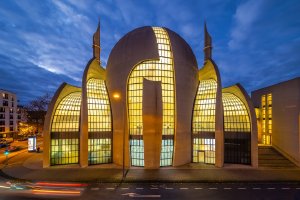In a victory for religious freedom, Minneapolis has become the first large city in the U.S. to allow mosques to amplify their daily call to prayer over an outdoor loudspeaker.

The right of some two-dozen mosques in Minneapolis to broadcast adhan (also known as azan), the centuries-old Islamic tradition of calling Muslims to prayer, follows the March 24 passage of a bill introduced in the Minneapolis City Council by Jamal Osman, a Muslim member of the legislative body.
Declaring that God is great and proclaiming the Prophet Muhammad as his messenger, adhan is a resonant invocation in Arabic that typically lasts around five minutes and calls on Muslims five times a day to offer prayers.
The new legislation allows mosques to electronically amplify calls to prayer from 7 a.m. to 10 p.m., provided local noise ordinances are observed. Although an existing ordinance already permits religious sounds to be broadcast during that time period, mosques generally did not issue the adhan until the new law kicked in.
“These are the hours that church bells are supposed to ring,” Osman said in a Twitter message. “The call should be no louder than 15 decibels [more] than the outside noise of the property … and any mosque in the city can follow up with my office or the Health Department and we can help make sure that the call is the appropriate volume. This is a signal of the equality and community we have built here. This is America and we are allowed to share our faith from the rooftops, just like everyone else.”
Local Muslims have cautiously viewed the prospect of adding to the city’s soundscape, however, for fear of provoking a backlash from residents who might oppose or resent amplified calls to Islamic prayer.
Yusuf Abdulle, director of the Islamic Association of North America, a network of three dozen predominantly East African mosques based partly in Minnesota, told the Associated Press that when he came to the U.S. two decades ago, “the first thing I missed was the adhan.”
“We drop everything and answer the call of God,” he said. Referring to the increasingly large and visible Muslim community in Minneapolis, he added: “It’s a sign that we are here.”
_______________
From its beginnings, the Church of Scientology has recognized that freedom of religion is a fundamental human right. In a world where conflicts are often traceable to intolerance of others’ religious beliefs and practices, the Church has, for more than 50 years, made the preservation of religious liberty an overriding concern.
The Church publishes this blog to help create a better understanding of the freedom of religion and belief and provide news on religious freedom and issues affecting this freedom around the world.
The Founder of the Scientology religion is L. Ron Hubbard and Mr. David Miscavige is the religion’s ecclesiastical leader.
For more information visit the Scientology website or Scientology Network.


